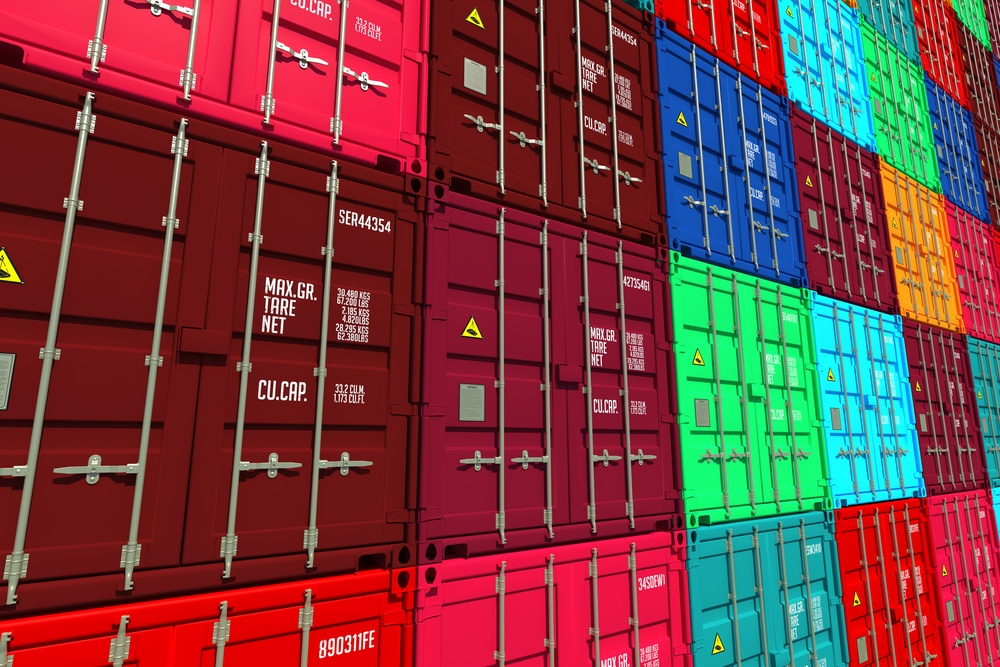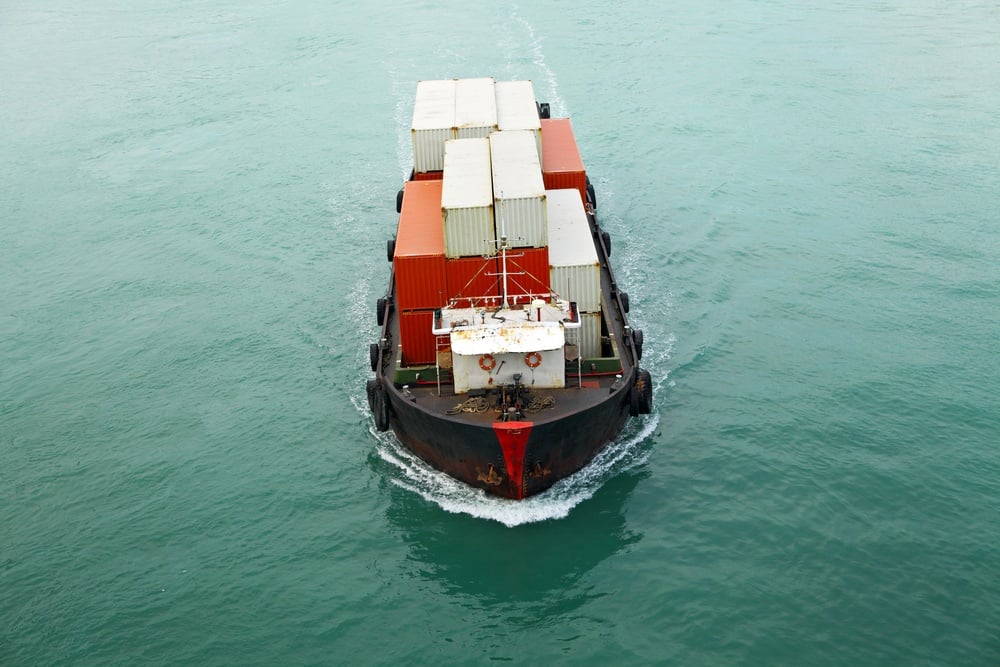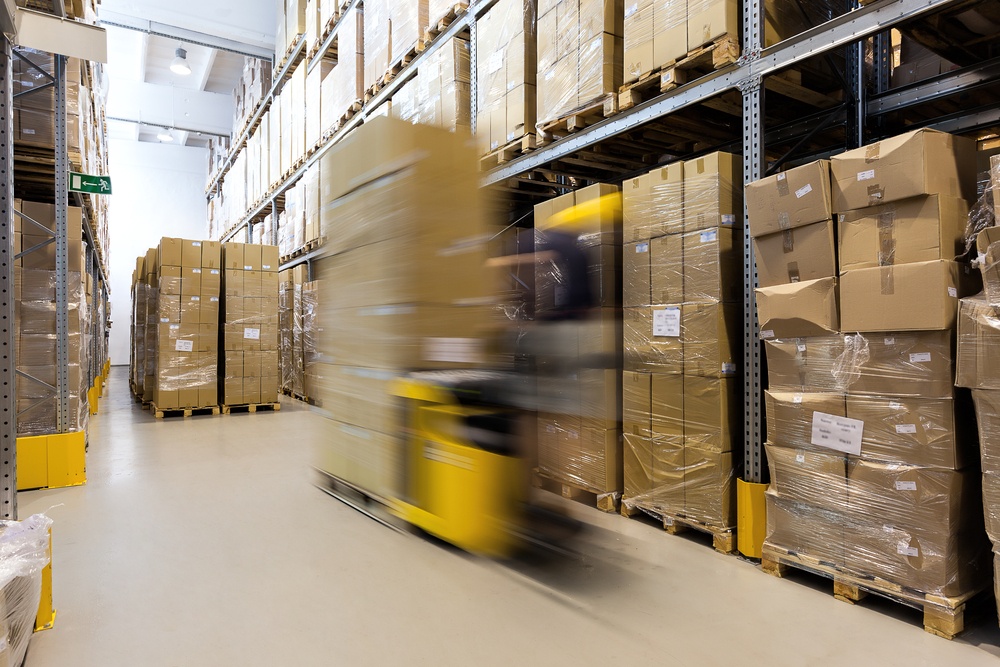The importing and exporting of goods and products has long been a key growth indicator for UK businesses and the economy as a whole. But with Brexit on the horizon, how will UK trade be affected?
In this article, we’ll explore the challenges and solutions of importing and exporting for companies who face an uncertain future in this deeply tumultuous financial climate.
Importing & Exporting: A Great Way To Grow Your Business
It’s no secret that importing and exporting goods and products enables business growth. Globalisation has opened (and continues to open) up many new markets and as technology advances it has become even easier to trade with countries and economic zones that might previously have been distant and unreachable.
Benefits and Challenges of Importing and Exporting
Importing and exporting offer significant opportunities for business growth and operational efficiency. Businesses that engage in international trade can access new markets, diversify their product offerings, and reduce costs by sourcing from regions with lower production expenses. However, the financial strain and operational complexity associated with international trade can sometimes outweigh the benefits, especially for small and medium-sized enterprises (SMEs).
Benefits of Importing and Exporting
-
Opening New Domestic Markets
- Exporting allows businesses to introduce their products to international markets, increasing their customer base and revenue potential.
- Entering new markets can help diversify income streams, making businesses less vulnerable to domestic economic fluctuations.
- Building a presence in international markets strengthens brand recognition and customer loyalty.
-
Offering New Products
- Importing enables businesses to expand their product lines by sourcing finished products or components from foreign suppliers.
- Access to a wider range of products allows businesses to meet customer demands and stay competitive.
- New product offerings can help businesses differentiate themselves from competitors.
-
Reducing Raw Material Costs
- Importing raw materials or components from low-cost manufacturing regions can significantly reduce production costs.
- Lower costs improve profit margins and allow businesses to offer competitive pricing.
- Strategic sourcing from countries with favorable trade agreements can further reduce costs through tariff exemptions and lower import duties.
Have Rising Import Costs Impacted Your Business?
The last four years have seen the government expand on its strategy of austerity playing a big part in its recovery. And while it may have had overall success (rising GDP, unemployment rates down, interest rates holding, steady inflation rate, stock markets up), this doesn’t mean that it’s been an easy ride for the thousands of small businesses that rely on importing and exporting.
SMEs are the lifeblood of the UK economy, but the government’s strategy for growth doesn’t always make it an easy ride. This is because fiscal policy has concentrated, for the most part, on maintaining healthy export conditions for UK businesses, yet those that rely on imports have seen costs steadily rising in response.
In January, the Guardian reported that, despite a rebounding manufacturing industry in the last six months since the Brexit vote, the UK has endured record import costs.
This means that despite favourable export conditions, the overall cost of exported goods is likely to rise due to the heavy reliance on imported raw materials and components. Key indicators of this include:
- Weakened pound
- Rising fuel costs
- The rising cost of building material
The Financial Pressures Small Businesses Experience When Importing
There are a variety of costs associated with importing from different countries and economic zones, including:
Transportation Costs
Paying for freight companies to forward your goods to you is a critical part of your importing costs, are you going to use road, rail, sea, or air?
- Road
Low-cost and extensive road networks are available. Next day and timed deliveries are available and you can track your goods if you need to. Road transport is relatively safe.
However, the downsides of using road transport include breakdowns, traffic, borders, motorway toll charges, fuel charges, and the inconvenience of overland transport for long-distance freight (i.e. further than the EU).
- Rail
Another cost-effective method is where your goods are delivered in bulk alongside many others. Rail links in Europe are excellent, routes are competitive and fast, as well as being environmentally friendly (compared to other modes).
The risks of using rail include inflexible rail routes, breakdowns and track maintenance, and industrial action by unionised staff. Also, you will need to forward on the goods from freight rail stations to their final destination.
- Sea
For goods further afield, shipping freight by sea can be the only cost-effective method available. This has the benefit of allowing you to ship high volumes of goods and using shipping containers that can easily be forwarded by roads from the docks.
However, there are certain risks posed by sea freight, for example, it can be exceptionally slow, tracking your goods can be difficult, bad weather can delay scheduling, insurance costs can easily get out of control, and you will need to pay for additional port and taxes.
- Air
By far the quickest method of receiving your imported goods, especially over very long distances such as South East Asia and Australia, and security is by far the best of all methods of transport.
As this is the quickest and safest way to import goods, it also lends itself to being the most expensive. Additional costs might include airport taxes, fuel, currency surcharges and additional transport from the receiving airport.
Some of the key factors to consider when choosing your method of transport include:
- How big and how heavy are the goods you want to import? (size and weight affect price)
- Speed of delivery
- Value of the goods
- Warehousing, Port and Inspection Fees
It is often necessary for your imported goods to be subject to customs warehousing, where fees usually apply. A warehouse will hold your goods before your pick up. Be aware of late collection and storage fees, often payable prior to collection.
- Import Duties
This is mainly the VAT you will be expected to pay on most imports. Your VAT will be calculated on the costs of the goods, i.e. commission, packing, transport and insurance. Although it may still be possible to reclaim the VAT paid on your VAT return.
Other import duties can vary according to your particular commodity codes if you register for an EORI number, and if you need to obtain an import licence for certain goods.
- Inspection Charges
This can vary from country to country, often quality inspection needs to be independently verified. It can pay to ensure quality inspection takes place prior to shipping and arrival.
- Agent Fees
These are usually contained in your freight charge, but sometimes they are not. You will need to pay for an arrival agent to arrange warehousing before your logistics provider collects and transports on.
The Rising Costs of Importing and Exporting in the UK
While importing and exporting provide clear benefits, the associated costs have steadily increased over the past decade due to:
- Brexit-related tariffs and trade barriers
- Currency volatility
- Rising fuel and energy costs
- Global supply chain disruptions
- Increased regulatory complexity
- Higher insurance premiums
Post-Brexit Challenges
Brexit has created a structural shift in the UK’s trade environment:
- Departure from the EU Single Market and Customs Union
- Increased documentation and customs declarations
- New tariffs on goods imported from and exported to the EU
- Non-tariff barriers (e.g., product standards, licensing)
- Increased administrative costs and border delays
Impact of Currency Fluctuations
Since the Brexit vote, the pound has weakened significantly against major currencies such as the US dollar and the euro. This has had a mixed impact on UK trade:
- Positive for exporters: A weaker pound makes UK goods cheaper for overseas buyers.
- Negative for importers: Imported raw materials and components have become more expensive.
Global Supply Chain Disruptions
The COVID-19 pandemic, geopolitical tensions (such as the Ukraine war), and disruptions in major shipping routes (e.g., Suez Canal) have added further complications to global trade.
The Financial Pressures Small Businesses Experience When Exporting
There are also a host of costs associated with exporting to different countries and economic zones, including:
- Setting up local company offices: Open up your own local branch, although this can be costly and a lengthy process which often involves creating a new business in the exporting country. More often than not companies will employ an overseas sales agent.
- Overseas sales agent: An overseas sales agent will act on your behalf in the local market, both arranging sales and ensuring local legal requirements are adhered to. They will take a commission but will know their marketplace and act as your man on the ground.
- Using an overseas distributor: The other option is to use a distributor who will take responsibility for your product once it enters the foreign country. This means you only deal with them and not the end customer or market.
- Packaging & labelling: Make sure your packaging is suitable for your export market, it must comply with local regulations. This is especially relevant when health and safety standards are to be complied with. Errors will be costly. Consider technical regulations and product liability. Using the correct labelling can ensure your exports reach their destination with the minimum of hold-ups or delays. Mislabeled items are the number one cause of delays for freight forwarding companies.
- Insurance: Having insurance for your goods while in transit is essential for you to ensure that you are not taking any risks with your product. Whether you charge your customer for this or not, it is imperative that your goods are fully insured for their entire journey.
- Taxes: Depending on your product and your shipping destination, a number of taxes might be charged to your consignment.
- Transportation: Always make sure that you use a freight forwarding company that has full liability insurance. You also need to make sure that their driver’s and operator’s licences are able to cover your particular type of goods or product.
- Chasing Payment: Getting paid is essential and there are always risks when you suffer from late international payments. This means credit control and credit risks need to be prioritised. Credit checks can mean assessing the political economic and currency exchange rates, altogether. HM Revenue & Customs have kindly produced a Guide to Importing & Exporting for UK businesses, although when you consider the contents page extends for 5 pages, it isn’t at all straightforward. Or, of course, you could consider outsourcing your logistics altogether.
Why The Falling Value of the Pound Isn’t Good For Small Business Imports
Consider the construction industry. Due to the strong pound, it has enjoyed relatively cheap imports of building materials. Steadily rising costs of material and a weakened pound mean that it becomes more expensive to buy goods resulting in a two-fold process:
- Firstly, this means that buying materials from UK businesses providing similar services becomes more economical. So this actually helps some sectors of the economy.
- Secondly, despite this, overall costs have still risen, meaning the actual costs of building and construction have gone up. And that means higher prices for consumers.
This has prompted more emphasis on government initiatives aimed at helping house building and construction including the bold new plans at jump-starting the housing market. Despite this, the basic problem remains, imports are more expensive and building costs have risen.
…But A Devalued Pound Can Help Exporters
Cheaper Sterling means British exports become more attractive, and it should follow there will be increased exports.
Exporters and anyone who sells their goods abroad will benefit from a weaker pound. What the weak pound does is help British exporters sell their goods cheaper and this benefits foreign buyers who are getting more product and therefore more profit from their purchase. This ensures that British products – which tend to be much higher value than comparative foreign products are more competitive.
Anna Leach, CBI Head of Economics sums up the position for the UK’s exporting small businesses:
“It’s been a strong [first quarter] for UK manufacturers, with production growing robustly and overseas demand on the up. The fall in the pound seems to be finally helping to lift demand for UK manufactured goods. Manufacturers are expecting output to grow at the fastest rate since 1995. But the flip side is that cost pressures are widespread and manufacturers expect factory-gate prices to continue to rise strongly in 2017, putting pressure on prices generally”
The Role of Brexit on Importing and Exporting is a Major Talking Point
The potential effect of Brexit has yet to be seen, the falling pound has enabled export products to become much more tangible, certainly in the EU and beyond. Yet the next two years could see an end – or at least a change – to trade deals for UK exporters and its effect is as yet unknown.
- Possible import duties and tariffs
- The gap between trade negotiations and agreements
- Reduced investment
The net result could see an impact on importers that rely on foreign-supplied goods including:
- Fruit and vegetables
- Transport equipment
- Flowers
- Fish
- Chemicals
- Electrical components
- Petroleum
- Minerals and metals
- Clothing
Funding Guru & Import Export Loans
We can offer quick business loans for your import or export requirements, helping your business become more competitive in the global marketplace – pivotal during the next two years of Brexit negotiations and trade deals.
Maintain a steady cashflow and so your suppliers are paid and offer better credit terms if you are an exporter, with an influx of capital.
Import export finance is a useful short-term finance solution for anyone who brings goods in or sends good out of the UK and it’s worth talking to us to see what we can do.
The application usually involves an online business loan quote and caters for applications for finance designed to meet your emergency needs so you aren’t left fighting fires without a hose. Especially when trying to bridge the gap in funding that importing and exporting overseas can encounter.
Every business has circumstances where it is imperative finance is raised quickly to avoid either further costs or missed opportunities.
For those businesses that have generally good credit, going to a high street bank won’t cut it. Funds are needed quicker than standard bank loan applications. So turning to an alternative lender as your choice of short-term finance can fulfil your funding requirements. Whatever they are.








